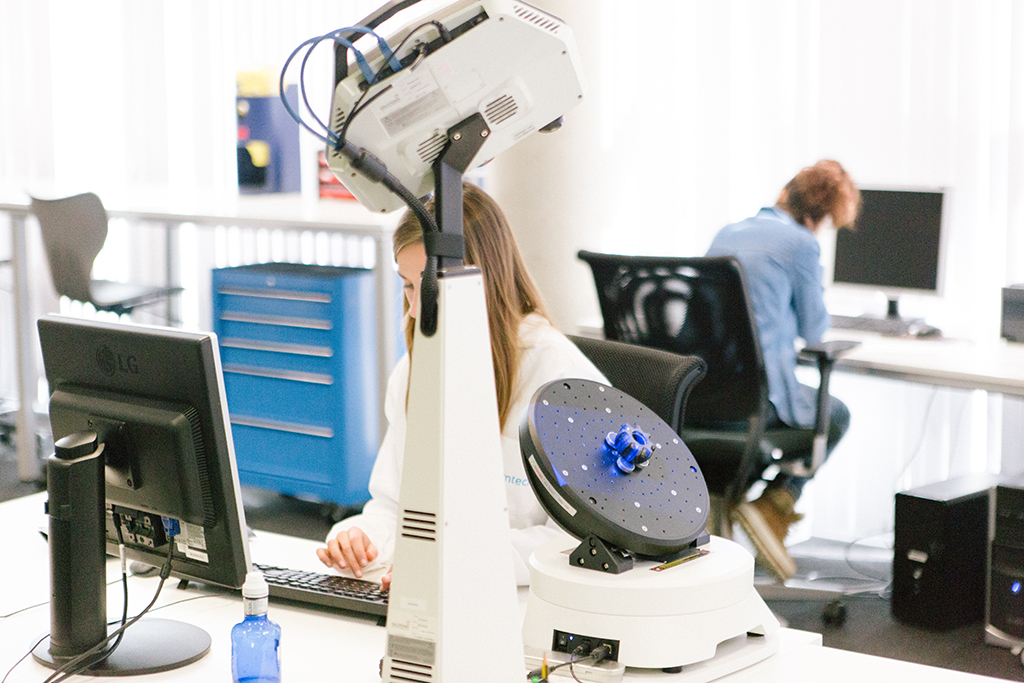Dibal seeks through the Foodys project to change the shopping experience in stores
The Biscayan firm, in collaboration with Vicomtech, is studying a new generation of self-checkout systems for food surfaces that allow bulk products to be weighed autonomously, products to be identified based on their visual appearance or to close the purchase cycle with payment and thus reduce waiting times at store exits.

28.07.2022
The Biscayan company Dibal, a leading brand in the state market for scales for commerce and industry and one of the benchmarks in Europe with more than 35 years of experience, leads the Foodys project with the collaboration of Vicomtech within the framework of the Hazitek program of the SPRI group.
The project is focused on a new generation of self-checkout systems for food surfaces that improve the customer experience in the purchase process. And it is that the pandemic has promoted the use of new technologies in the sales rooms. “Covid-19 has caused customers not to want to wait in lines or follow a standard purchase and payment process. They seek freedom of action and, even, not to interact with other buyers or store personnel if it is not necessary”, emphasizes Iratxe Berriozabal, Dibal's Marketing Director.
In this new scenario, Dibal has chosen to launch a project to develop technological solutions associated with the purchasing process in supermarkets that, applied individually or in combination, improve the customer's shopping experience. These solutions must allow bulk products to be weighed autonomously, by identifying the products according to their visual appearance, and also to be able to close the purchase cycle with payment.
"To this end, it is planned to develop and apply technological solutions for mobile weighing, as well as product identification, both fresh and dry, through cameras and visual identification software", details the person in charge. Vicomtech, the Basque technology center specializing in Artificial Intelligence, Visual Computing & Iteraction, is working in the field of product identification through cameras and visual identification software.
Greater autonomy for the client
The Foodys project seeks to provide greater autonomy to the buyer, by changing the shopping experience in the store. The user will be able to identify and add to a ticket the products that he deposits in his cart through cameras, product identification or reading of the EAN code. Once you've made your purchase, there's no need to wait and go through a checkout lane or self-checkout kiosk all over again. "The buyer will be able to confirm his purchase and make the payment on a single device, and then leave the center with his purchase, which will reduce waiting times when leaving the stores," Berriozabal points out.
Even during the purchase process, the customer will optimize his time, since he can request his turn in one or several assisted sales sections from the shopping cart itself and continue making the purchase in the store while his turn arrives. The device on the cart will alert you that your section turn is coming up. "The customer, in addition, can be provided with all kinds of information (promotions based on their purchase history, the purchase they are making at that time, recipes based on their purchase...) that will improve and facilitate their purchase", says the director of Marketing.
The technology that is being studied in the project can be applied in different situations and devices on the commercial surface: autonomous shopping carts, product payment stations or, in the case of using it in self-service scales, the recognition of products by image will also facilitate the product selection process.
All of this, according to the person in charge of Dibal, "would be a benefit for large stores, since they would be offering an alternative to make purchases in stores to those already existing in the market". It could be attractive to attract new customers and the chains would have information, in real time, about their customers' purchases, which "is a determining point in making agile decisions to improve the efficiency of any business."
The project presented has a deadline until the end of 2022. “From then on we will obtain conclusions and we will be able to specify how, when and in which areas of those studied we can apply it. The minimum goal is to at least put fruit and vegetable recognition on self-service scales on the market by January 2023,” she concludes.
The Basque firm has a workforce of 200 workers, invoices around 30 million euros per year, exports 55% of its production and is present in more than 60 countries.
The SPRI Group promotes the R&D of Basque companies with tools, assets, grants, working groups and alliances in order to promote research and generate new technologies. Consult R&D support programs such as Elkartek, Emaitek or Hazitek.








